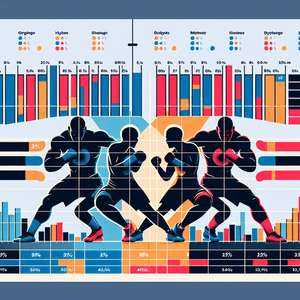Patrick Mahomes: The Making of a Modern Football Icon

Born on September 17, 1995, in Tyler, Texas, Patrick Mahomes was destined for greatness. He grew up in a sports-oriented family; his father, Pat Mahomes, was a professional baseball player, which exposed Patrick to the world of athletics from an early age. This environment fostered a competitive spirit and a deep understanding of sports. Mahomes attended Whitehouse High School in Texas, where he showcased his dual-threat capabilities as a quarterback and an exceptional athlete in baseball and basketball. His senior year performance, where he threw for over 4,600 yards and 50 touchdowns, caught the attention of college scouts, leading him to Texas Tech University. At Texas Tech, Mahomes further honed his skills, breaking numerous records and earning recognition as a top quarterback prospect.
Rise to Stardom
The Kansas City Chiefs selected Mahomes with the 10th overall pick in the 2017 NFL Draft. Initially, he served as a backup to veteran quarterback Alex Smith, but it wasn't long before his opportunity came. In 2018, Mahomes took over as the starter and quickly made his mark. He threw for over 5,000 yards, 50 touchdowns, and was named the NFL MVP, becoming the youngest quarterback in history to achieve this feat. Mahomes' playing style is characterized by his incredible arm strength, mobility, and an innate ability to make plays under pressure. His signature no-look passes and improvisational skills have redefined quarterback play, captivating audiences and earning him comparisons to legends like Brett Favre and Dan Marino. What sets Mahomes apart is not just his physical talent, but also his football IQ, which allows him to read defenses and make split-second decisions that can change the course of a game.
Key Achievements and Impact
Under Mahomes' leadership, the Chiefs have become a dominant force in the NFL. In 2020, he led the team to its first Super Bowl victory in 50 years, defeating the San Francisco 49ers in Super Bowl LIV. He was named the game’s MVP, solidifying his status as a superstar. The following year, Mahomes led the Chiefs back to the Super Bowl, although they fell short against the Tampa Bay Buccaneers. His ability to perform on the biggest stage has made him a household name and a beacon of hope for Chiefs fans. Beyond his on-field success, Mahomes has made a significant impact off the field. He is known for his philanthropic efforts, particularly through the "15 and the Mahomies Foundation," which focuses on improving the lives of children and supporting various educational initiatives. His commitment to community service and social justice issues has endeared him to fans and established him as a role model for aspiring athletes. For instance, during the COVID-19 pandemic, Mahomes played a crucial role in encouraging vaccinations and promoting health safety among his fans and the broader community.
Patrick Mahomes is more than just a talented quarterback; he is a modern football icon who embodies the spirit of the game. His journey from a small-town kid in Texas to a two-time Super Bowl champion is a testament to hard work, dedication, and an unyielding passion for football. As he continues to break records and inspire the next generation of athletes, Mahomes’ legacy will undoubtedly shape the future of the NFL for years to come. His story is not just about football; it is about how one individual can influence a community and elevate a sport through talent, leadership, and a commitment to giving back. In an era where athletes often grapple with their influence and responsibilities, Mahomes stands out not only as a phenomenal player but also as a compassionate leader. As he continues to evolve and excel, fans and aspiring quarterbacks alike will look to him not just for his athletic prowess but also for the example he sets as a community advocate and role model. The making of Patrick Mahomes is a story still being written, and the chapters ahead promise to be just as thrilling as those already penned.
Sports Marketing Manager
Major sports teams, marketing agencies focused on sports, athletic apparel brands
Core Responsibilities
Develop and execute marketing campaigns to promote sports teams or athletes, leveraging social media and traditional marketing channels.
Collaborate with sponsorship partners to maximize brand engagement and visibility during events.
Analyze market trends and fan engagement data to refine marketing strategies.
Required Skills
Strong understanding of sports branding and consumer behavior.
Proficiency in digital marketing tools and analytics platforms.
Excellent communication and project management skills.
Athletic Program Coordinator
Community centers, schools, nonprofit organizations focused on youth development through sports
Core Responsibilities
Organize and manage youth sports programs, ensuring they align with community and educational objectives.
Recruit and train coaches, ensuring they adhere to safety and development standards.
Foster partnerships with local schools, nonprofits, and businesses to enhance program outreach.
Required Skills
Experience in sports administration or education.
Strong leadership and interpersonal skills to engage with athletes, parents, and community members.
Knowledge of safety regulations and best practices in youth sports.
Sports Data Analyst
Professional sports teams, sports analytics firms, sports technology companies
Core Responsibilities
Collect and analyze performance data of athletes and teams to provide insights for coaching staff and management.
Create visualizations and reports to communicate findings effectively to stakeholders.
Stay updated on industry trends and technologies to enhance data analysis methodologies.
Required Skills
Proficiency in statistical software (e.g., R, Python) and data visualization tools (e.g., Tableau).
Strong analytical skills with a keen attention to detail.
Knowledge of sports metrics and performance analysis frameworks.
Community Engagement Director (Sports)
Sports franchises, local government offices, nonprofit organizations focused on health and wellness
Core Responsibilities
Develop community outreach programs that promote sports participation and wellness, particularly among underserved populations.
Collaborate with local organizations to host events that encourage youth engagement in sports and physical activity.
Manage budgets for community programs and assess their impact through feedback and data analysis.
Required Skills
Experience in nonprofit management or community development.
Strong networking skills to build partnerships across various sectors.
Excellent public speaking and presentation abilities.
Sports Performance Consultant
Sports academies, professional teams, individual athletic training businesses
Core Responsibilities
Provide coaching and mentorship to athletes, focusing on mental and physical performance enhancement.
Develop personalized training and nutrition plans tailored to individual athlete needs.
Analyze athlete performance data to identify areas for improvement and set goals.
Required Skills
Certification in sports performance training or a related field (e.g., CSCS, NASM).
Strong understanding of sports psychology and biomechanics.
Proven experience in coaching or training athletes at various levels.


